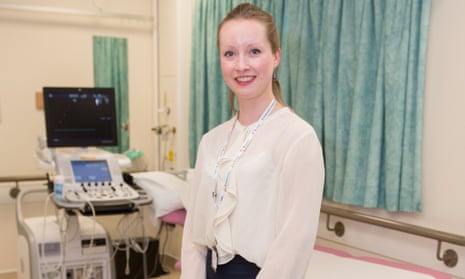For people of faith, when they face serious ill-health or an operation, being able to seek solace in their beliefs is vital. Even more so when they reach the end of life.
Now humanists are campaigning to end what they see as discrimination against non-religious people being treated by the NHS, by urging that chaplains – or what they term non-religious pastoral carers – are hired to cater for non-believers.
Humanists UK has been advertising – including in the Observer – to raise funds to support pastoral workers and train them, because it says there is a disproportionate number of religious chaplains in the NHS, given how many people in the UK do not have religious beliefs. The latest Social Attitudes Survey said 53% of Britons have no religion.
Humanists UK has also backed a new MA in existential and humanist pastoral support – the first outside continental Europe – to provide humanist chaplains. The course is being run with the New School of Psychotherapy and Counselling and backed by Middlesex University.
But some Christian denominations in Britain are concerned that their own chaplains will be squeezed out if they have to compete with humanists for a limited number of chaplaincy positions in hospitals.
According to Richy Thompson of Humanists UK, people who do not have a faith are not being served well by hospitals and their existing chaplains. “Non-religious people want to meet someone who is like-minded and the data suggests religious chaplains don’t generally visit non-religious people,” he said. “Research shows that only around 4% of visits by religious chaplains are to the non-religious.”
While people with faith find comfort in a chaplain who might read from a religious book to them, say prayers, or, in the case of Christians, give patients communion, humanist chaplains clearly do none of these things. But, according to Thompson, they are much more than akin to a friend or a counsellor.
“Our pastoral carers have a well-developed sense of their own non-religious belief system and are trained to deal with complex issues around meaning and purpose. Often being able to speak to someone who shares your world view facilitates the ability to explore deep existential questions and enhance someone’s wellbeing at a point of crisis.”
In April, a humanist was appointed to lead an NHS chaplaincy team for the first time. Lindsay van Dijk has been chosen for the co-ordination and leadership role by Buckinghamshire Healthcare NHS Trust, in a team which includes three Christian chaplains and 24 volunteers.
The push for more humanist chaplains comes at a time when NHS budgets are under pressure and there is limited money to go around for chaplains who represent different beliefs. As chaplains are appointed trust by trust, rather than by the Department of Health and Social Care, even the Church of England says it is not sure exactly how many there are in British hospitals, although in 2015 the Health and Social Care Information Centre reported that there were 916 full and part-time chaplains, a drop of 20% on the previous five years.
Canon Malcolm Brown, the director of mission and public affairs for the Church of England, said: “Every trust works out the numbers of chaplains and affiliations of chaplains differently, and those appointing chaplains have to give a clear reason if an appointment is specifically designated as requiring someone of a particular religious denomination or belief. This might be to reflect, for example, the makeup of the local population.
“We have to work very hard to give an account of why there should be an Anglican chaplain.”
Jim McManus, an adviser to the Catholic Bishops Conference of England and Wales on healthcare, said: “There should be a national audit so that we can get a clear picture of people needs across the country and then make provision accordingly.”

Comments (…)
Sign in or create your Guardian account to join the discussion